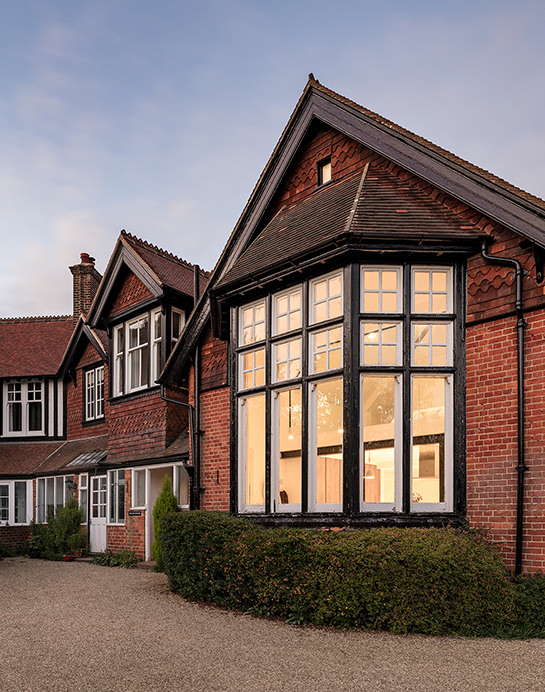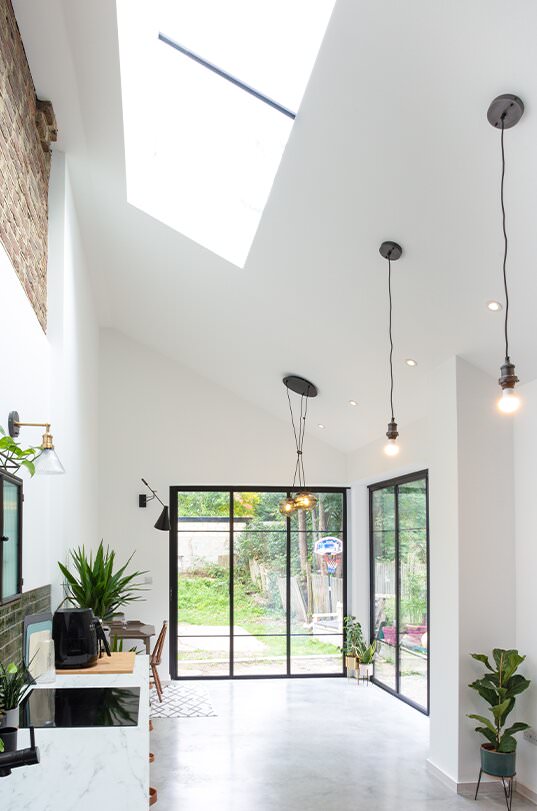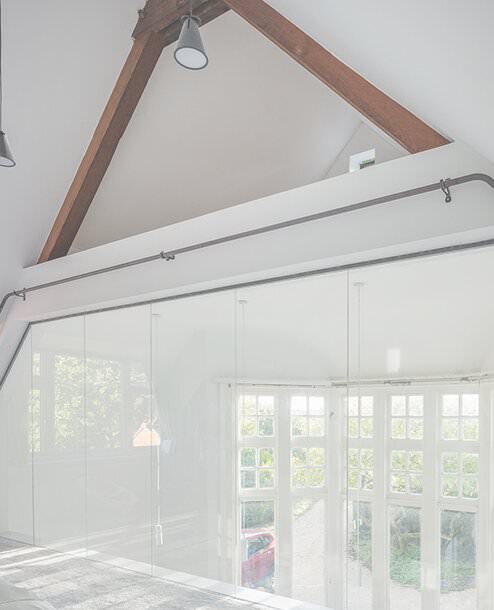How long does planning permission last?
December 4, 2020
It’s common for clients to come to us with planning already in place either for one off houses, developments or extensions as this will add a premium to the land value. If you’re interested in a plot with planning, the key check items will include the expiration date on the planning permission and also any associated planning conditions that may limit the use of the land.
So, you’ve got planning permission – great! But suddenly circumstances mean that you’ve put the brakes on building your project and the planning permission expiration date is fast creeping up on you. We take a look into how long does planning permission lasts.
Back in 1968, the government introduced a 5 year planning period to reduce the number of landowners getting permission and not building out their projects. This was reduced to 3 years in 2009 and unfortunately for most, in 2013 the days of applying for time extensions to commence your project is over.
So, how long have you got before your planning permission expires?
The answer depends on your type of planning application.
For outline planning permissions there are usually 3 years to submit reserved matters followed by 2 years from the date that the permission is granted to discharge any associated pre-commencement conditions before starting works on site.
Typically, with full planning permission you will have 3 years from the date that the permission is granted to commence the development.
If time is ticking for you, you haven’t started works on site and you want to keep the planning permission alive, then you’ll need to make a decision to either:
OPTION 1: COMMENCE ON SITE
What does commencing works on site entail?
The answer to this lies in the Town and Country Planning Act, Section 56 which clearly explains the definition of a material operation which effectively means commencement of works on site.
These are listed out as the following:
- any work of construction in the course of the erection of a building;
- any work of demolition of a building;
- the digging of a trench which is to contain the foundations, or part of the foundations, of a building;
- the laying of any underground main or pipe to the foundations, or part of the foundations, of building or to any such trench as is mentioned in paragraph (b);
- any operation in the course of laying out or constructing a road or part of a road;
- any change in the use of any land which constitutes material development.
If you undertake any of the above actions, this will keep your planning permission alive. But in doing any of the above it’s critical that you consider the application and associated responsibilities carefully.
Planning conditions:
Planning conditions must be carefully reviewed and if necessary discharged or the works may potentially be considered unlawful. Check through your planning permission decision notice to see if there are pre-commencement conditions.
CIL:
There are also S106 and CIL requirements to carefully be considered. Be very careful to serve the correct notices to the relevant local authorities or potentially face a hefty fee if this is incorrectly done prior to starting on site. Check with your local authorities’ CIL department is unsure.
Typically, we’ve found that this is to be the preferred choice as it banks the planning permission with the least planning risk.
OPTION 2: RE-APPLY FOR PLANNING PERMISSION
What does re-applying for planning permission entail?
If, for whatever for reason you cannot commence works on site in time to keep your planning alive you’ll have the option of re-applying for planning permission. In short, it’s exactly what it says on the tin – re applying for planning permission but not necessarily from scratch as hopefully your planning documentation tabled still stands up to current planning policy.
Does reapplying mean a guaranteed approval?
Having already had planning approved in the past, you’ll be in good stead for your new planning application. However, it must be added that it is not guaranteed for approval. Planning policies and the local plan are assessed every few years. For example, the housing demands of local authorities are in constant review which will impact both the density and feasibility of residential sites. In addition to this, should the application go to planning committee, councillors may have changed which meaning opinions differ along with your chances of planning approval. However, having established planning permission previously, you would hold a good footing to achieve planning approval.
1) What are the time implications?
The time implications are based on two sections:
a) Design time
Should you be looking to re-utilise your existing planning documentation the time involved should be very minimal as you’re only looking at some administration work to fill the correct planning forms. However, it’s worth checking in with your design team to ensure the tabled design is still in line with the current planning policies. If changes have to be made, then this will elongate the design time involved.
b) Planning review period
This typically will involve a two week validation period and eight weeks for minor applications or 13 weeks for major applications.
2) What are the cost implications?
Costs range subject to the type of application your project falls under.
Applying for a detailed or full planning permission for a new house or conversion is currently £462.
Outline applications cos £462 per 0.1 Ha.
Householder applications for extensions or outbuildings are £206.
If planning is granted with conditions attached, then a planning submission to discharge the conditions are £116 for detailed or full planning permission or £34 for householder applications.
You can find the appropriate form to fill out and submit on the planning portal website.
The costs of design fall outside of this, so subject to whether any change is required this can vary quite widely so check with your appointed design team.
COVID-19 CHANGES
At the time of writing, the government under section 93A of the Town and Country Planning Act has given all planning permissions that were due to lapse between 19th August 2020 and 31st December 2020 to be extended to the 1st May 2021. This is in recognition of the impact of COVID-19 on the planning and construction industry allowing commencement of planning permissions and listed building consents without the need for a new application. This happens automatically to the related permissions with no required to obtain additional environmental approval.
GET IN TOUCH
Although you may be in a rush to call the builders to hopefully activate your planning permission it’s absolutely critical to ensure you’re following the right procedures or risk a potentially unlawful move on site! What we’ve discussed above is a high-level outline of what can be a very complex subject. In order to understand your project and it’s specifics, it’s always worth having a chat in person to better understand your situation.
If you have a question about your existing or lapsed planning permission feel free to give us a shout on either [email protected] or 0208 1441737.






